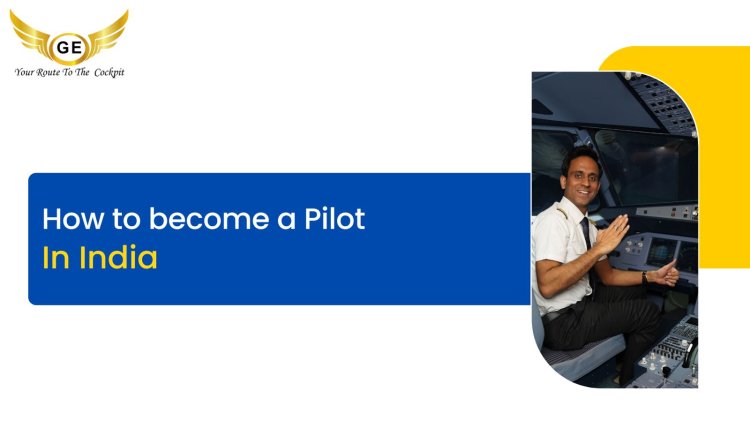Understand the importance of aviation training programs for aspiring pilots.
The dream of soaring high above the clouds and navigating the skies is one that many individuals share. The journey of how to become a pilot is an exciting yet challenging path that requires dedication, passion, and, most importantly, proper training.

Understand the Importance of Aviation Training Programs for Aspiring Pilots
Introduction
The dream of soaring high above the clouds and navigating the skies is one that many individuals share. The journey of how to become a pilot is an exciting yet challenging path that requires dedication, passion, and, most importantly, proper training. Aviation training programs are the backbone of a pilot’s education, providing the essential skills and knowledge required to excel in the aviation industry. In this article, we will explore the significance of aviation training programs and how they play a crucial role in the journey of aspiring pilots.
Why Aviation Training Programs Are Essential
Aviation training programs are designed to equip aspiring pilots with the theoretical knowledge, practical skills, and confidence needed to handle aircraft safely and effectively. Whether you aim to become a commercial pilot, a private pilot, or a certified flight instructor, training programs offer structured learning that covers a wide range of essential topics.
-
Building a Strong Foundation in Aviation Knowledge
Understanding the basics of aviation, such as aerodynamics, navigation, meteorology, air traffic control procedures, and aircraft systems, is crucial for aspiring pilots. Aviation training programs provide a comprehensive curriculum that lays the groundwork for safe and efficient flight operations. -
Practical Flight Training
Learning how to become a pilot is incomplete without practical flight training. Hands-on experience under the guidance of certified flight instructors helps trainees develop essential flying skills. This includes take-offs, landings, emergency procedures, flight maneuvers, and cross-country navigation. -
Safety and Emergency Training
Safety is the top priority in aviation. Training programs teach aspiring pilots how to respond effectively to various emergencies, from engine failures to adverse weather conditions. Developing these skills early on ensures that pilots are prepared to make critical decisions under pressure. -
Certification and Licensing Preparation
One of the most critical aspects of learning how to become a pilot is obtaining the necessary certifications and licenses. Aviation training programs prepare trainees for written exams, practical tests (checkrides), and oral exams conducted by aviation authorities such as the Directorate General of Civil Aviation (DGCA) in India.
Types of Aviation Training Programs
The path to becoming a pilot varies based on the type of license you wish to obtain. Below are some common types of aviation training programs:
-
Private Pilot License (PPL)
Ideal for recreational flying, a PPL allows individuals to fly for personal enjoyment but not for commercial purposes. Training typically includes a minimum of 40 hours of flight time. -
Commercial Pilot License (CPL)
Those pursuing a career as a professional pilot must obtain a CPL. This training involves rigorous flight training, including night flying, instrument flying, and complex aircraft operations. -
Airline Transport Pilot License (ATPL)
The highest level of pilot certification, ATPL, is required for those aiming to become airline captains. This program requires extensive flight experience, advanced training, and written and practical exams. -
Certified Flight Instructor (CFI)
For those interested in teaching others how to become a pilot, the CFI program provides the knowledge and skills necessary to instruct students effectively. -
Multi-Engine Rating
This training is essential for pilots who wish to operate multi-engine aircraft. It includes both ground and flight training, focusing on engine management, emergency procedures, and advanced aircraft handling.
The Role of Aviation Training Schools
Choosing the right aviation training school is a significant step in your journey to how to become a pilot. Reputable institutions provide high-quality training, certified instructors, and well-maintained aircraft. Additionally, many schools offer financing options and scholarships to help aspiring pilots manage the cost of training.
Benefits of Aviation Training Programs
-
Structured Learning Environment
Training programs provide a structured approach to learning, ensuring that all essential topics are covered thoroughly. -
Mentorship and Guidance
Working with experienced flight instructors helps trainees gain valuable insights and advice throughout their training journey. -
Networking Opportunities
Enrolling in a reputable aviation training program offers opportunities to connect with industry professionals and fellow aspiring pilots. -
Access to Advanced Equipment and Technology
Modern training programs often include simulator training, which enhances practical learning in a controlled environment.
Challenges in Aviation Training Programs
While aviation training programs offer immense benefits, aspiring pilots may face challenges such as:
- High Training Costs: Aviation training can be expensive, but financing options and scholarships can help.
- Rigorous Certification Requirements: Meeting the requirements for various licenses demands dedication and consistent effort.
- Time Commitment: Balancing training with other responsibilities can be challenging.
Conclusion
Understanding how to become a pilot involves recognizing the importance of comprehensive aviation training programs. From building foundational knowledge to developing practical flying skills, these programs are essential for ensuring safety, competence, and confidence in the skies. For aspiring pilots, investing in quality training is a critical step toward achieving their dreams of becoming skilled and certified pilots.
What's Your Reaction?
















.jpg)